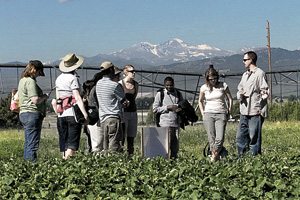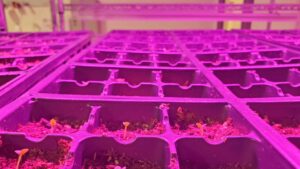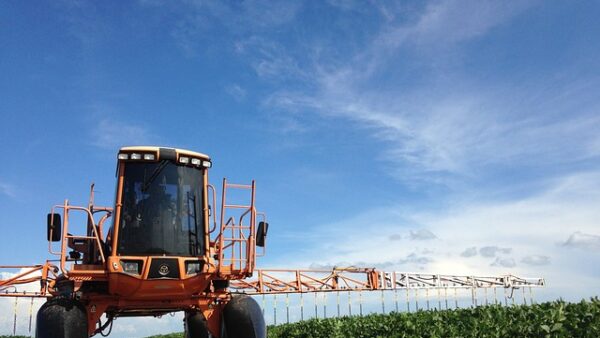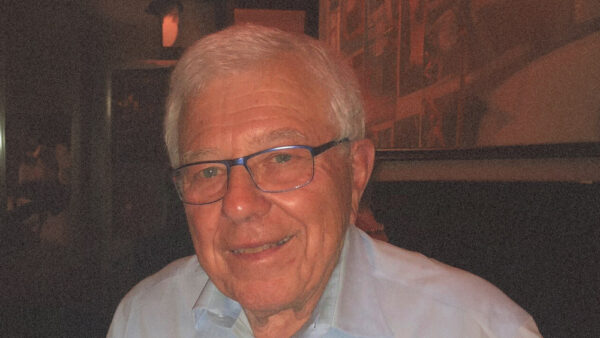The number of candidates entering breeding programs is decreasing around the world. What will this mean for the seed industry in the years to come?
Developing new varieties of plants can be a rewarding occupation, but it can also be a laborious branch of agricultural research. While most plant breeders aspire to give the world varieties that will resist pests and disease, be drought tolerant in areas where water is scarce and nutritious in an increasingly hungry world, many work in obscurity for decades. Most breeders would only admit in secret of ambitions to be the next Norman Borlaug. Without public attention and promotion of the merits of plant breeding as a career, a dwindling number of young people are interested in entering this profession, and breeders working in the industry continue to retire.
Not only are there fewer students entering plant breeding programs, but the nature of the discipline has changed with more specialized branches. Traditional field research remains the linchpin of a successful breeding program, but more work is being done in the laboratory using molecular genetics. Unfortunately, the excitement of biotechnology as it applies to plant breeding is still not attracting enough candidates to the field.
“Plant breeding is no longer a one person job,” explains Allen Van Deynze, chair of the Plant Breeding Co-ordinating Committee in the United States. “Breeders have to be able to handle a lot of data to track traits and that may require assistants.” He adds that private and public breeding programs also demand different skills from developing varieties, to writing research papers, to understanding other cultures and their needs.
Van Deynze is also concerned about the number of breeders who teach breeding programs and are retiring. These professionals will not be around to teach the next generation of breeders. “The number of plant breeders who teach plant breeding are declining and this creates another dilemma,” he says. “Students need to learn how to run a field program from someone.”
Plant Breeding Education
To address the issue of how plant breeding has changed, Van Deynze and Fred Bliss, professor emeritus at University of California—Davis, and a former plant breeder himself, sought the opinions of four groups: public and private breeders in developed countries, breeders in developing countries and recent graduates in the breeding industry. Approximately 300 respondents to the survey provided the researchers with some interesting insight into what knowledge and skills breeders need in order to fit into an industry that does not look like it did 50 years ago.
“We initiated the global survey to learn how best to prepare future plant breeders for careers in agriculture,” Bliss explains. “The challenge is identifying what constitutes a ‘plant breeder’ because there are approximately 2,200 plant breeders in the United States, including people who develop molecular markers and those doing field work. It is difficult to determine how many people are actually working in plant breeding and how many will be needed in the future.”
Bliss notes he was replaced when he left a breeding and teaching position at the University of Wisconsin several years ago, but was not replaced when he left his position at UC—Davis. He says often an assessment is made when a position becomes vacant on whether to fill it or create a different one that will contribute more to the direction the employer wants to take.
“There definitely seems to be fewer plant breeders in the public sector at universities to train future breeders,” Bliss comments. “We need to examine the kind of training that is needed.” From the survey, he and his colleagues learned the need for a broad spectrum approach to educate breeders around the world who have knowledge of foreign affairs along with plant breeding skills. But there is also a need to teach the basics of plant breeding to students who come from abroad who are planning to take their knowledge home to their developing countries.
Preventative Measures
Despite the assessment that the future is challenging in the plant breeding sector, the reality is that countries such as the United States are graduating enough breeders today to fill the available positions. According to Bliss, over a five-year period between 70 and 75 academic degrees were awarded to U.S. students specializing in plant breeding, and that appeared to be the approximate number of positions available to be filled. It is his opinion the number of breeders needed are being educated in the field, but the experiences and skills they require is not being attained. Combine that with declining enrollment numbers, and it’s obvious there may be a problem in the future.
Thankfully, the seed industry has taken action. The American Seed Trade Association is making a concentrated effort to develop programs for schools that will educate students about career opportunities in the seed industry, which include plant breeding. Individual companies are implementing co-operative programs in conjunction with colleges and universities. There are also attempts being made to improve grant and scholarship programs. All these initiatives are intended to provide the information and training needed in a sector that is experiencing declining interest and enrolment in programs.
“We have started offering summer internships at the undergraduate and graduate levels at Greenleaf Genetics,” says the company’s CEO Ron Wulfkuhle. “Our hope is that [students] may want to continue their education and come back to us some day. Perhaps they will tell their friends about careers in agriculture.” He adds his company currently has an opening in its research group and expects another in the spring of 2011, but there is not an abundance of candidates from which to choose.
Van Deynze points out that the seed industry is very global and that breeders may need to develop business and people skills, so upgrading the various curricula is important if the vocation of plant breeding can be assured. In order to provide education on a global basis, UC—Davis launched a European program for its Plant Breeding Academy last year. Created on the model of the highly successful Plant Breeding Academy, the UC—Davis Seed Biotechnology Center established a program to serve plant breeding companies in Europe. The European program is being held in five countries over 21 months.
The fear there will not be enough plant breeders to fill positions in the future may be unfounded in 2010, but unless students learn about breeders such as Borlaug, who changed one small sector of agriculture forever, and the potential of a rewarding career in the plant sciences, a future shortfall of talent is possible. Fortunately, the seed industry has taken steps to encourage students to consider this calling. Rosalie I. Tennison













